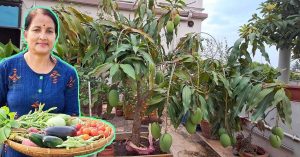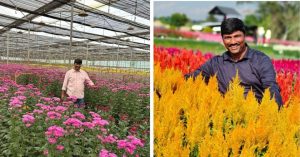‘They Call Me ‘Queen of Millets’: Tribal Woman Preserves 30 Types of Rare Indian Millets
Hailing from Odisha's Koraput district, tribal farmer Raimati Ghiuria has preserved 30 varieties of millets and trained hundreds of women.
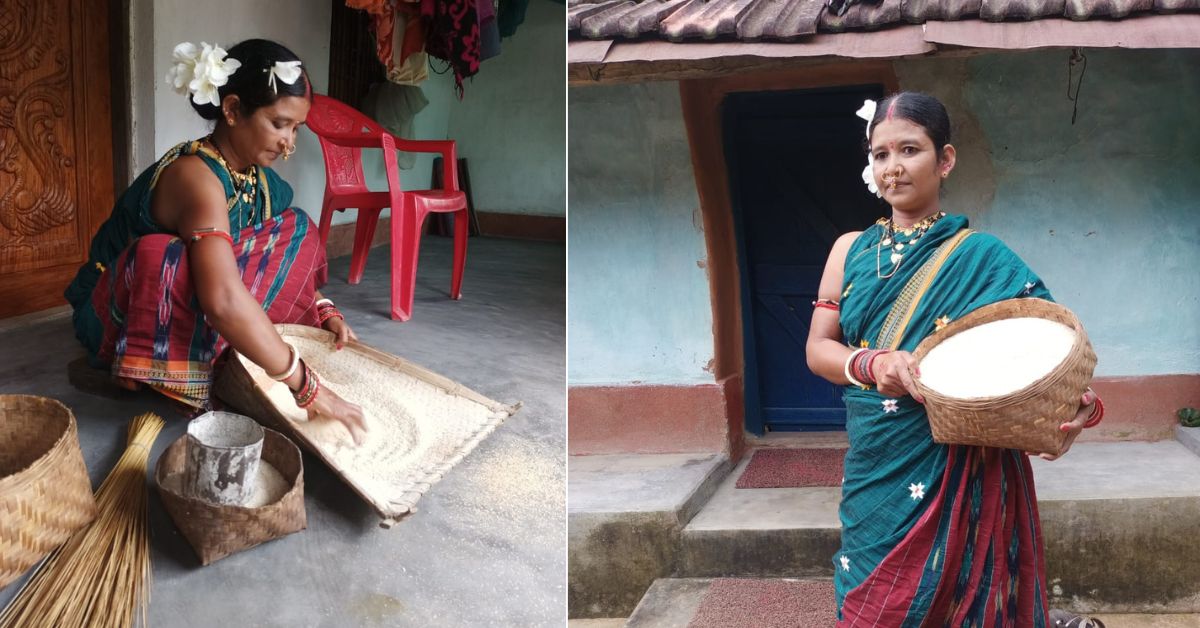
The recent G20 Summit saw significant participation from global delegates from across 19 countries including Australia, China, Italy, and the European Union. Among the eminent invitees was Odisha’s Raimati Ghiuria.
The tribal farmer was invited to commemorate the ‘International Year of Millets’, which is aimed at reviving interest in millets that have been edged out by grains like wheat and rice over the years.
Hailing from a small tribal village in the Koraput district, Raimati showcased her active participation in revitalising traditional rice and millet varieties at the G20 Summit held in New Delhi on 9 September, 2023.
“I got an opportunity to speak to people from across the globe about our village and our contributions in conserving millets. They called me the ‘Queen of Millet’,” Raimati tells The Better India with pride. “So many people surrounded me to take pictures. It was a one-of-a-kind experience for me.”
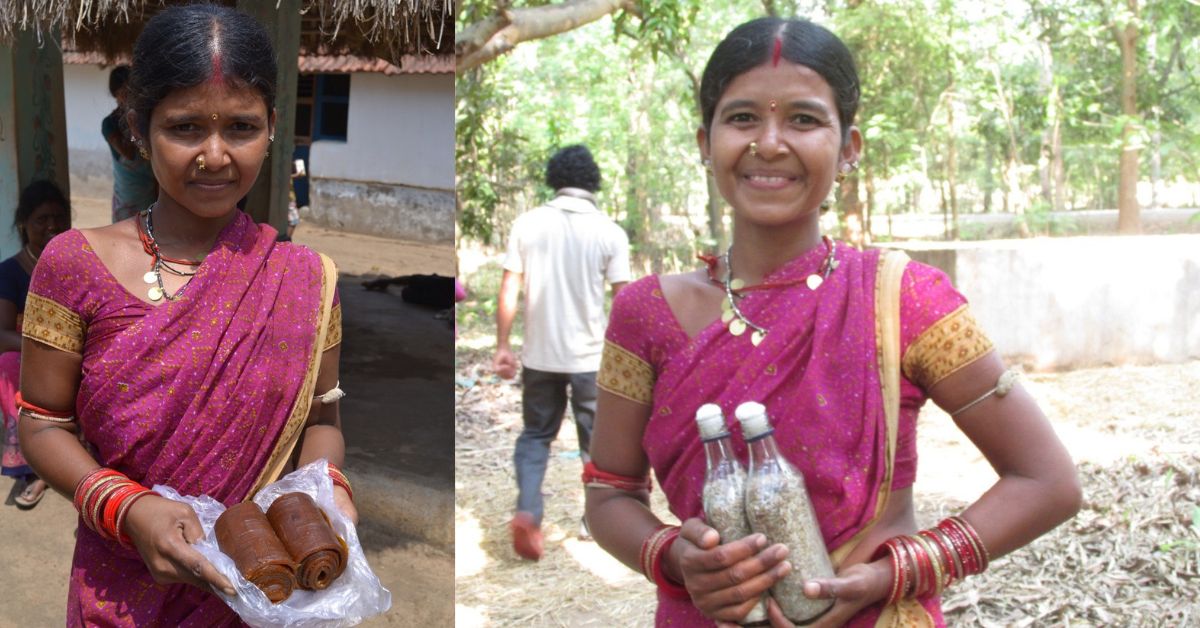
Draped in an ethnic saree and having her hair styled with flowers, she made several heads turn at the G20, including that of the President of India, Draupadi Murmu. “Personally, she appreciated my work and wished me good luck. It was such a great moment. I never dreamt that I could ever meet the President,” she adds.
A pioneer in native seed conservation, so far, Raimati has preserved 72 traditional paddy varieties and at least 30 varieties of millets — including Kundra bati mandia, jasra, juana, and jamkoli.
Interestingly, one of her millet varieties ‘Kundra bati mandia’ will officially be released by the Odisha government next year.
Cultivating millets scientifically
Born and raised in an agricultural family, Raimati could only study till Class 7. She has been interested in cultivating crops since childhood. “Now, I do not remember any of the teachings from school, I only know how to conserve and grow millets that I learnt on the field,” she smiles.
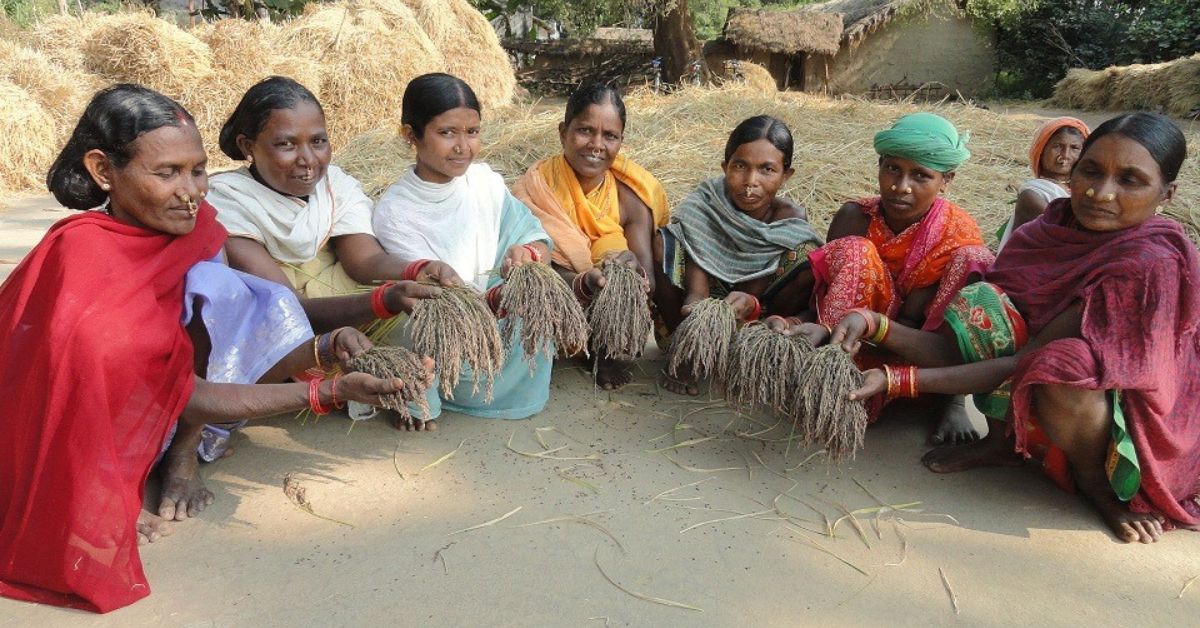
Growing up, Raimati was inspired by Kamala Pujari. The 70-year-old farmer from her district was conferred the Padma Shri Award for conserving hundreds of varieties of paddy seeds throughout her life.
“As a child, I used to tag along with her to the fields. She would teach me traditional cultivation techniques like initiating pollination in crops and conservation of various kinds of native grains,” recalls Raimati.
Raimati got married at the age of 16 and moved to Nuaguda village in Kundra block. But she did not lose her interest in farming. Amid the household chores, she managed to pursue her passion for collecting and preserving millets.
Today, she cultivates millets on four acres of farmland. Over the years, she has adopted better technology and scientific farming methods to improve the yield and quality of millet farming.
With the help of Padma Shri Kamala Pujari, she associated with a Chennai-based non-profit called MS Swaminathan Research Foundation (MSSRF) that aims to develop and promote strategies for economic growth that directly target increased employment of impoverished women in rural areas.
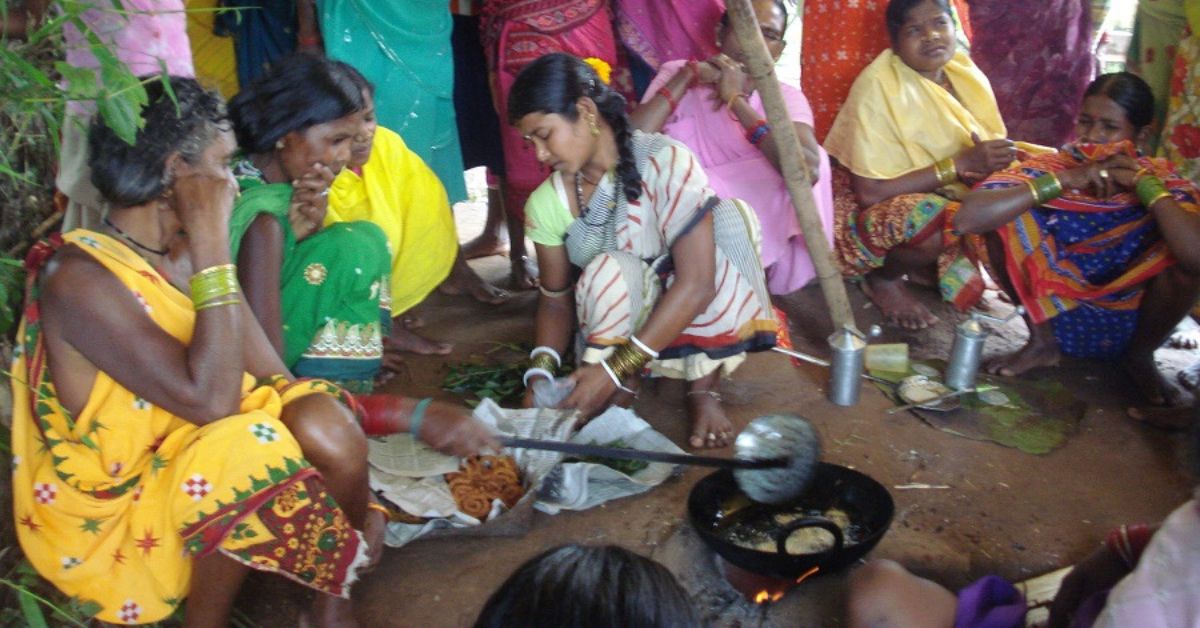
Since 2000, the foundation has helped Raimati adopt the scientific methods of conservation including the System of Rice Intensification (SRI), line transplanting method for paddy cultivation, Seed Multiplication Index (SMI), line transplanting method for finger millets, making bio inputs to promote organic farming.
To take the work forward, Raimati has now trained 2,500 other farmers in her block to adopt millet farming techniques.
‘Millet Queen’ of Odisha
Raimati points out that millets form an integral part of their everyday meals.
“We make chapatis and snacks like dosa from mandia (finger millet). Every day, we prepare a porridge using millet and consume it during breakfast, lunch, as well as dinner. We can survive a day without rice but not without millet. It is like an energy booster and gives me strength to work in the field,” she adds.
At the G20 Summit, Raimati also spoke about these culinary cuisines made from millet.
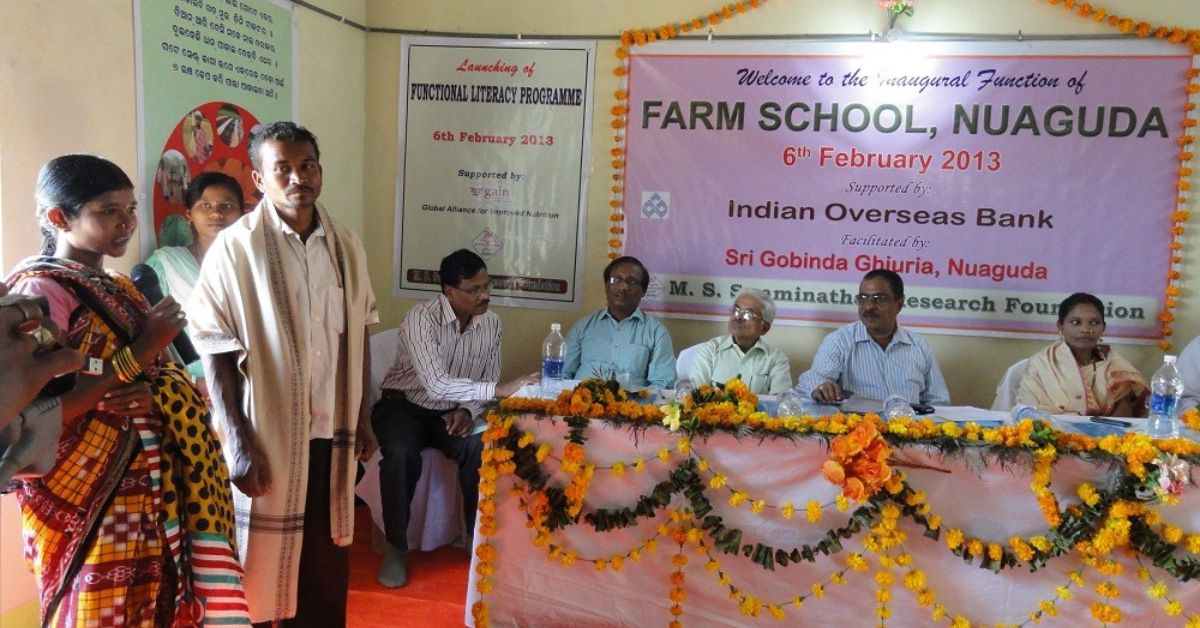
For Raimati, millet cultivation transformed her life. She now leads a self-help group of women farmers and farmer producer companies to process millets into value-added products like pakoras and laddus to sell at the local market and tiffin centres in the Kundra block.
Furthermore, Raimati has also played a key role in establishing a farm school in her village by donating her ancestral family land. Since 2012, she has been actively training people to practise millet farming in a scientific manner and earn a better income with value addition.
For her work, Raimati has been entitled ‘Millet Queen’ at the state level this year. She has been awarded the Best Farmer Award by the ICAR – IISWC, Sunabeda in 2016, and the Best Farmer Award in the Traditional Food Festival conferred by TATA Steel, Nuamundi in 2018. If you found our stories insightful, informative, or even just enjoyable, we invite you to consider making a voluntary payment to support the work we do at The Better India. Your contribution helps us continue producing quality content that educates, inspires, and drives positive change. Choose one of the payment options below for your contribution- By paying for the stories you value, you directly contribute to sustaining our efforts focused on making a difference in the world. Together, let’s ensure that impactful stories continue to be told and shared, enriching lives and communities alike. Thank you for your support. Here are some frequently asked questions you might find helpful to know why you are contributing?

“The national-level recognition has not only brought me immense respect from my in-laws but also from global leaders. It motivates me to conserve more varieties and make my state proud,” says Raimati.
Edited by Pranita Bhat. All photos: MSSRF.
This story made me
-
97
-
121
-
89
-
167




